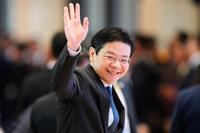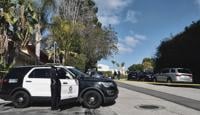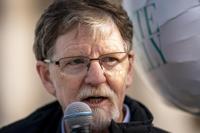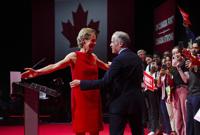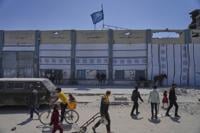SINGAPORE (AP) — Singapore's long-ruling People’s Action Party is on track to win another landslide in Saturday’s general elections, according to a sample count of votes released by the Election Department.
The sample count showed the PAP in strong leads in 82 out of 97 seats, which gives it a total 87 seats in an enlarged Parliament. The opposition Workers Party maintained 10 seats. The sample count was not conclusive, but has mirrored final results in the past.
It marked an improvement for the PAP, which secured 83 seats in 2020 polls. It also will bolster Prime Minister Lawrence Wong in his first electoral test since taking office a year ago. The final results will be released later Saturday.
Supporters of the PAP, which had ruled Singapore since 1959, gathered at a stadium waving flags and cheering in an early celebration.
Eugene Tan, law professor with the Singapore Management University, said the opposition's failure to make further inroads after 2020 was a surprise. “Singapore voters played their cards close to their chest. Today, they indicated that their trust is with a party that has delivered over the years,” he said.
A U.S.-trained economist who is also finance minister, Wong's appeal for a resounding mandate to steer trade-reliant Singapore through economic turbulence following U.S. President Donald Trump’s tariff hikes has hit home. The government has lowered its trade forecast and warned of a possible recession.
Wong, 52, to become the city-state's fourth leader. Lee stepped down in May 2024 after two decades at the helm but remained in the Cabinet as a senior minister. His retirement as premier ended a family dynasty started by his father, Lee Kuan Yew, Singapore’s first leader, who built the former colonial backwater into one of the world’s richest nations during 31 years in office.
The PAP is seen as a beacon of stability and prosperity, but tight government control and the rising cost of living in one of the world’s most expensive cities also has led to growing unhappiness, especially among younger voters. Widening income disparity, increasingly unaffordable housing, overcrowding and restrictions on free speech have loosened the PAP’s grip on power.
The PAP’s share of the popular vote slipped to a near-record low of 61% in 2020 elections, down from nearly 70% in 2015. The opposition says giving it a stronger presence in Parliament will allow a more balanced political system and greater accountability. But they face an uphill task, often hamstrung by a lack of resources and fragmented support. Critics said gerrymandering also gives the PAP an advantage.
Lawyer Akesh Abhilash, 37, said after voting that he believes the PAP would retain a strong mandate but that Singapore would have benefited from a greater diversity of voices in Parliament.
Wong has sought to refresh the PAP, which fielded 32 new faces as several veterans bowed out. He has engaged younger voters through social media and promised to develop a more balanced and inclusive Singapore.


